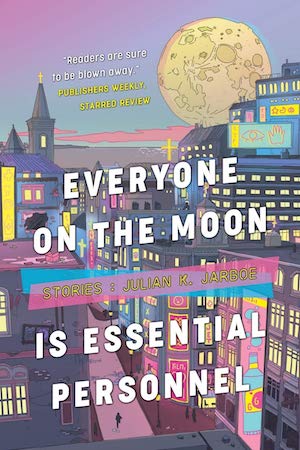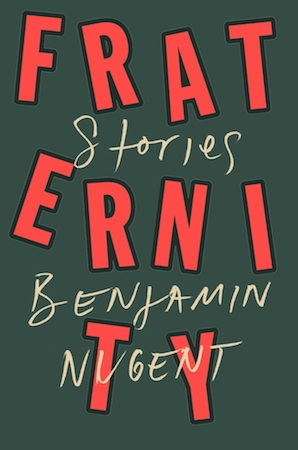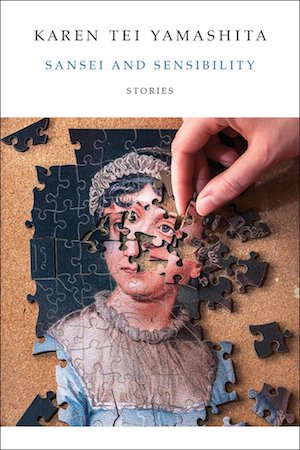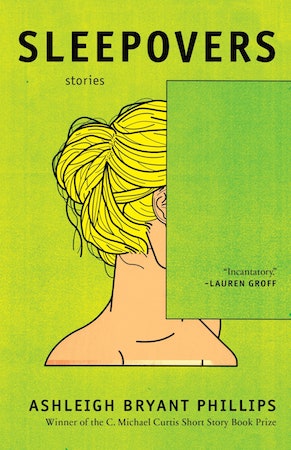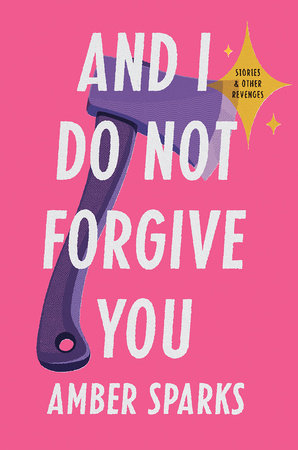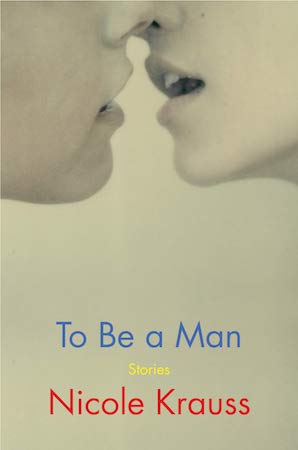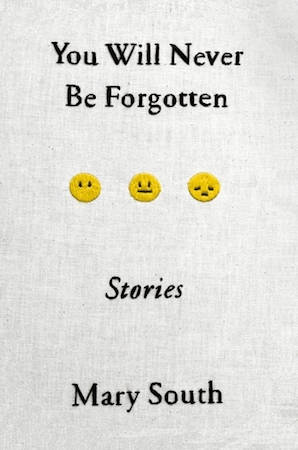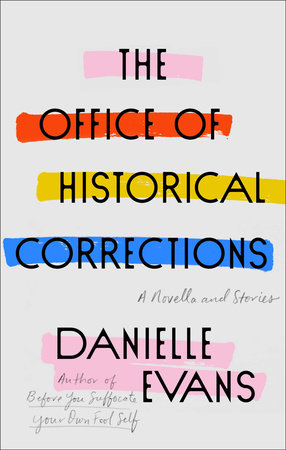Find the perfect gift for the writer or reader in your life in our online store. Take 20% your entire order with the code STAYHOME2020, now through Christmas!
Did everyone else notice that the New York Times list of 100 notable books from 2020 only included one short story collection? Weird, right? There were actually so many great collections this year—but with the help of votes from Electric Lit staff, former staff, and contributors, we’ve narrowed it down to 20. In roughly ascending order (we had a lot of ties), here are our favorites of the year. (When you’re done, check out our picks for nonfiction books.)
Everyone on the Moon Is Essential Personnel by Julian K. Jarboe
Recommending Julian K. Jarboe’s satirical queer science fiction collection in Recommended Reading, Casey Plett writes that “Jarboe’s writing makes me weepy and laugh deliriously at the same time.” Read the title story, “Everyone on the Moon Is Essential Personnel.”
F*ckface by Leah Hampton
Leah Hampton brings rage but also a sense of humor to stories about life, death, sex, and sadness in Appalachia. Read “Twitchell,” about a chemical company that may or may not be giving generations of people cancer (recommender Deb Olin Unferth called it “gut-wrenching”), and “Meat,” about interning at a slaughterhouse, in Recommended Reading.
Fraternity by Benjamin Nugent
Fraternity is a set of linked stories about the Delta Zeta Chi brothers, and how their toxic performative masculinity affects their lives. Read an interview between Nugent and Genevieve Sly Crane, author of Sorority, about taking inspiration from Greek life.
How to Pronounce Knife by Souvankham Thammavongsa
Thammavongsa’s tautly-written collection focuses on the stories of Laotian refugees who have made it to the United States. Read an interview with the author, or read the story “Randy Travis” in Recommended Reading, where Vinh Nguyen praised her “heartbreak, humor, and defiance all condensed in the most crystalline language and imagery.”
Sansei and Sensibility by Karen Tei Yamashita
Sansei and Sensibility blends the stories of third-generation Japanese Americans with the characters of Jane Austen. Borders and realities collide in this beautiful collection, which deals with everything from class dynamics to what we really inherit from our ancestors.
Show Them A Good Time by Nicole Flattery
Recommending a story about a woman trying to date during the apocalypse, Colin Barrett writes: “‘Not the End Yet,’ like all the stories in Show Them A Good Time, is a story that is both funny peculiar and funny haha. The world is ending, but there is still time.” These are strange stories that upend the familiar.
Sleepovers by Ashleigh Bryant Phillips
Sleepovers focuses on stories set in rural North Carolina. In these bold, frank stories, characters navigate friendships and relationships, shedding light on a part of the forgotten South without being afraid to dig deep into its darkness.
Verge by Lidia Yuknavitch
The stories in this spiky, magnetic collection deal with characters about to go over the edge, whether that means the edge of their bodies (as in a story about searching for organs on the black market) or the edge of reality.
Where the Wild Ladies Are by Aoko Matsuda
“If there is a specific subgenre of ghost story of which I am inordinately fond, it is the one in which the protagonist has sex with a ghost,” writes Carmen Maria Machado, recommending Aoko Matsuda’s story “Peony Lanterns.” Matsuda’s spirited (in a few senses) collection is inspired by traditional Japanese ghosts, and she also curated a list for us of female ghosts from folklore.
I Know You Know Who I Am by Peter Kispert
Kispert’s debut collection is all about lies and the (queer) liars who tell them. Recommending one of these stories, Kristen Arnett summed up Kispert’s work: “Peter Kispert is a funny writer, but he’s also ready to sucker punch you with feeling.” Read “In the Palm of His Hand,” about a man pretending to be Catholic for love, in Recommended Reading.

Likes by Sarah Shun-Lien Bynum
This fantastical collection Likes marries fairy tales the and modern world, illuminating the experiences of girls and women by pairing them with the strangeness of fable—or simply highlighting the strangeness of real life.
How to Walk on Water by Rachel Swearingen
Caitlin Horrocks praised the “delicious mystery” of Swearingen’s story “Advice for the Haunted” in Recommended Reading. The rest of this debut collection likewise balances eeriness, danger, and uncertainty with minutely-observed descriptions of everyday life.
A House Is a Body by Shruti Swamy
“Through Shruti Swamy’s collection, A House Is a Body, her varied characters share a singular quality—their painful desire to reach the reader with the secrets, shame, and truths they can share with no one else,” writes Laura Furman, recommending “The Neighbors” from this intense and groundbreaking book. Swamy also curated a list of books that take women’s bodies seriously.
And I Do Not Forgive You by Amber Sparks
The surreal, funny, genre-bending stories in And I Do Not Forgive You combine history, ghosts, fables, urban legends, time travel, and video games in perfect magical realist alchemy. Read an interview with Sparks about reimagining happily-ever-after.
To Be a Man by Nicole Krauss
Krauss is well-known as a novelist, and she brings the same deftness with literary fiction about flawed, conflicted characters to her first short story collection. The characters in To Be a Man aren’t all men, but the collection does wrestle with ideas about masculinity and what it means for individuals and society.
You Will Never Be Forgotten, Mary South
Mary South’s stories are dark and funny, both absurd and way too real—Karen Russell meets Black Mirror. “I don’t feel like I have to invent much or stretch the world too far past recognition in my stories—our current reality is often a horrifying dystopia,” she said in her Electric Lit interview.
Daddy by Emma Cline
This provocative collection is fascinated with bad guys who don’t know that they’re bad. In her interview with Electric Lit, Cline said she wanted to investigate “that distance between how people think of themselves and how they actually are in the world.”
The Secret Lives of Church Ladies by Deesha Philyaw
Recommending Philyaw’s story “When Eddie Levert Comes,” about a mother with dementia who is infatuated with the soul singer she believes to be her lover, Rion Amilcar Scott suggests that the reader brace for an emotional walloping. Philyaw’s National Book Award–nominated collection pulls no punches as it deals with the complex relationships and desires of Black women in a conservative church. Read an interview with the author about church ladies and secret sex.
I Hold a Wolf by the Ears by Laura van den Berg
The stories in this collection are about violence, desperation, dark secrets, and attempted escapes, but mostly they’re about death—imminent death, actual death, the fear of death. “I want to tell you about the night I got hit by a train and died,” begins “Last Night,” which you can read in Recommended Reading. This book is as insightful as it is unsettling, and you can’t look away. Read an interview with van den Berg about which of her characters is the biggest Karen.
The Office of Historical Corrections by Danielle Evans
The characters in these stories, writes recommender Kelly Link, “are not submerged in or extinguished by loss. They are, in fact, so urgent, so bright, so compelling that they linger long after I close the book.” Evans deftly weaves race, love, grief, and history in this rich and remarkable collection. Read the recommended story “Anything Could Disappear,” or read our interview with the author.

